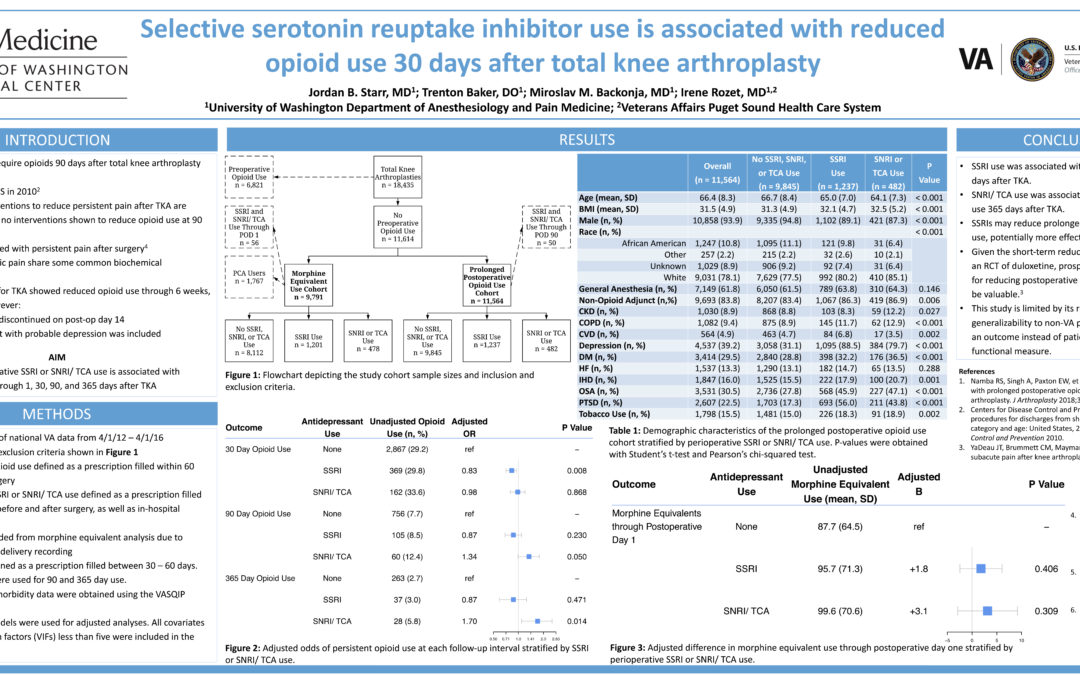There is a complicated two-way biological and psychological relationship between pain and depression. A poster from the University of Washington Medical Center presented at the 2019 American Pain Society described the results of a retrospective evaluation of post-operative opioid use following total knee arthroplasty in relation to prescription anti-depressant use. At 30 days post-op patients taking SSRIs were less likely to use opioids than patients taking SNRIs, TCAs or no anti-depressants. At 1 year post-op patients taking SNRIs or TCAs were more likely to still be using opioids than patients taking SSRIs or no anti-depressants.
Prescription opioids (codeine, tramadol, oxycodone, etc) are metabolized to the active drug, morphine, via the cytochrome P450 enzyme CYP2D6. SSRI’s are metabolized by and inhibit CYP2D6 enzymatic activity. SNRIs are heterogenous in terms of their metabolism through CYP2D6 and their effect on CYP2D6 activity. TCAs are metabolized by multiple cytochrome P450s, including CYP2D6, and do not alter CYP2D6 enzyme function.
Co-therapy, taking advantage of the SSRI-opioid-CYP2D6 pharmacogenomic drug-drug-gene interaction for pain management, mitigating the risk of opioid-dependence, is worth further investigation.
TGCA is currently preparing a white paper detailing the complicated pharmacogenomics of CYP2D6. Stay informed at tgcassociates.com
A special thank you to Jordan B. Starr, MD for providing the poster to TGCA.
#pharmacogenomics #CYP2D6 #opioid #antidepressant
